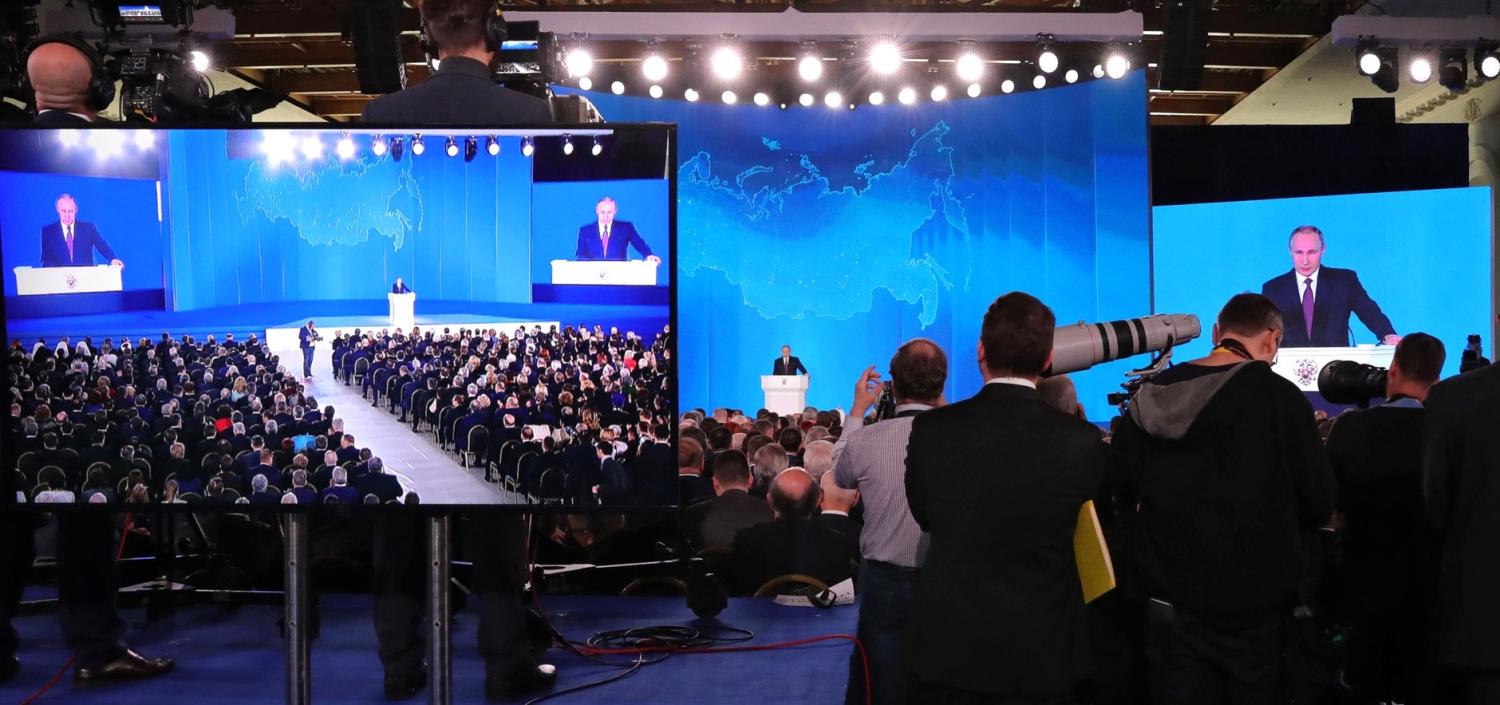The recent UN Security Council (UNSC) resolution for a 30-day ceasefire in Syria was arguably a vital step towards the delivery of much-needed humanitarian aid to 5.6 million Syrians deemed in “acute need”. Yet shortly after the resolution was unanimously adopted, the Syrian Government appeared intent on disregarding international law by continuing its offence against civilians in Eastern Ghouta.
Shouldn’t Russia, Syria’s greatest ally and also a permanent member of the Security Council, be concerned by this contravention of international law?
In September 2013, Russian President Vladimir Putin wrote a timely article concerning Syria in The New York Times, titled “A plea of caution from Russia”. In it, Putin made several important points worth recounting in detail.
First, Putin maintained that Russia and the US were once “allies” that worked together to defeat the Nazis, and thereafter the “universal international organisation – the United Nations – was ... established to prevent such devastation from ever happening again”.
Second, Putin argued there were “few champions of democracy in Syria”, and more “al-Qaeda fighters and extremists” battling the Syrian Government.
Third, he warned the US not to take any direct action in Syria in response to allegations of chemical weapons used by the Syrian Government. Instead, Putin maintained:
Under current international law, force is permitted only in self-defence or by the decision of the Security Council. Anything else is unacceptable under the United Nations Charter and would constitute an act of aggression.
Moreover, Putin was careful to emphasize that he was not “protecting the Syrian Government”, but rather “international law”. He acknowledged that, although there was no doubt poison gas was used in Syria, there was “every reason to believe” it was not used “by the Syrian Army”.
At the time Putin wrote his article, he could be forgiven for thinking Russia was on the right side of history. The US could not legitimately intervene in Syria on humanitarian grounds, having illegally intervened in Iraq in 2003 and unleashed a destabilising effect across the region.
However, in 2018 Putin’s New York Times article appears naive and unwitting at best. It is conspicuous for its failure to acknowledge the democratic aspirations of the Syrian people; Putin instead suggests that few Syrians are “champions of democracy”.
Syria was (and still is) a republic, whereby the people, not the Syrian Government, constitute the state. The early days of the Arab Spring, before the Assad government’s violent crackdown, saw a significant number of Syrians take to the streets to protest non-violently for political reform and greater democratic participation.
When Putin wrote his article, the Arab Spring may have seemed a distant memory. Since 2013, however, it has been alleged by the Commission for International Justice and Accountability (here and here) that many democratic “champions” in Syria were illegally detained and tortured, and in some instances killed.
What is also extraordinary about Putin’s article is the steadfast “belief” that the Syrian Army, or any other affiliation of the Syrian Government, did not use, and since then has never used, poison gas. As recently as November, Edmond Mulet, Head of the Security Council Joint Investigative Mechanism on Chemical Weapon Use in Syria, alleged that the Syrian Government used chemicals weapons.
After eight years of violent conflict, including during the recent assault on Eastern Ghouta, allegations of war crimes and crimes against humanity plague the Assad government. Yet Russia appears unable or unwilling to adapt its policy in light of new information.
In this respect, what the conflict demonstrates is that those states previously critical of US disdain for international law, such as Russia, have similarly demonstrated an inability to uphold global rules. In this case, they have failed in their responsibility to protect Syrian civilians from mass atrocities, and to refer those senior actors suspected of atrocities to the International Criminal Court.
Zeid Ra’ad al-Hussein, the UN High Commissioner for Human Rights, has described Syria as the “worst man-made disaster the world has seen since World War II”. Despite this, Russia, as well as many other countries across the Middle East, have demonstrated that, like their Western counterparts, they too are unable to place the needs of the Syrian people above their geopolitical aspirations.
Putin was right when he stated that international law should be respected. Perhaps his greatest error was to apply the defence of international law to the protection of the Syrian Government instead of the Syrian people.
Putin must carefully consider if Russia is acting on the right side of history. He could strengthen international organisations, including the UN and the International Criminal Court, in an effort to protect Syrian civilians and end impunity.
Will Russia and the US work together in Syria to, in Putin’s own words, “prevent such devastation from ever happening again”?

